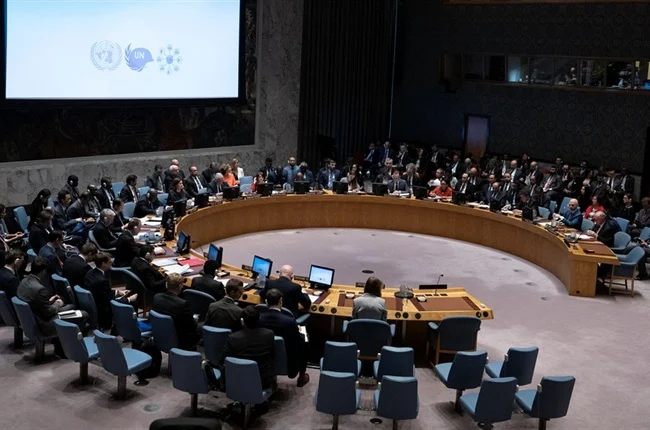The United Nations Security Council (UNSC) has decided to provide support to the SADC Mission in the Democratic Republic of Congo (SAMIDRC), led by South Africa.
South African troops involved in the mission have come under attack and have been criticized for being inadequately equipped and supported, facing M23 rebels who are largely believed to receive support from Rwanda, despite its denials.
The Security Council has now committed to providing intelligence and weaponry to the mission.
According to the Security Council, support for SAMIDRC will be offered “through enhanced coordination, information-sharing, and technical assistance” with the UN Organisation Stabilisation Mission in the DRC (MONUSCO).
The SAMIDRC will also be able to utilize MONUSCO’s logistical and military resources.
This, however, carries certain risks. Robert Wood, the U.S. Alternate Representative for Special Political Affairs at the UNSC, warned that supplying air support and armored vehicles for SAMIDRC operations might escalate regional tensions in the already volatile eastern DRC conflict.
“We need to ensure that this does not occur.”
Rwanda’s Paul Kagame, who has been labeled a “criminal” by Congolese President Felix Tshisekedi, opposed the UNSC resolution, arguing that it could lead to a conflict involving eight countries in the Great Lakes region.
In Kinshasa, Tshisekedi claimed that his predecessor, Joseph Kabila, now in Zimbabwe, is collaborating with Kigali to destabilize his administration and indirectly supporting the M23 rebels.
Rwanda: No One Wants Conflict
Rwanda is focused on avoiding a war in North Kivu that could spread into its territory, as this would affect its important tourism industry, according to diplomatic sources.
In 2022, tourism brought in R8.5 billion in foreign exchange earnings for Rwanda, which was vital for the country’s recovery from the global Covid-19 shutdown.
Hotels in southern Rwanda can cost up to R200,000 per night, particularly in areas known for gorilla tracking.
President Tshisekedi, who was in Brussels for a medical check-up over the weekend, addressed the media on Tuesday night. In an interview with Top Congo, he reaffirmed his position of not negotiating with Kagame or the M23 rebels.
He noted, however, that there was still a chance for dialogue.
“What I am indicating is that I wish to discuss matters with Rwanda, rather than negotiate, specifically to ask Kagame, whom I consider a criminal, about his role concerning my people,” he said.
Rwanda has repeatedly denied supporting the M23 rebels, despite evidence presented by the UN, which also suggests Tshisekedi’s connections with the Democratic Forces for the Liberation of Rwanda (FDLR) rebels.
Additionally, Tshisekedi accused his predecessor Kabila of collaborating with the Alliance Fleuve Congo (AFC), a coalition of rebel groups and exiled opposition parties, including the M23 rebels.
He accused Kabila of orchestrating a coup attempt.
“Joseph Kabila is avoiding the election and preparing an uprising as a member of the AFC,” Tshisekedi claimed.
In late July, a military court prosecuted 25 people connected to the AFC.
Only five appeared in court, while the rest were outside the country. Prosecutors are demanding the death penalty for those found guilty.
M23 Expands Control
The SAMIDRC took over operations in eastern Congo on December 15 of last year, succeeding the East African Community’s (EAC) standby force. Led by South Africa and supported by troops from Malawi and Tanzania, SAMIDRC has faced challenges.
Despite the EAC’s withdrawal, Burundian forces stayed in the DRC under a bilateral agreement. However, these Burundian soldiers have been hesitant to engage in combat, with some facing court-martial.
After nearly eight months of fighting, SAMIDRC has reported numerous casualties as M23 rebels have continued to gain ground, capturing key villages and cities.
Over the weekend, while a ceasefire arranged in Luanda—though not formally accepted by M23—was supposedly in effect, the M23 rebels took over Ishasha, a town on the Ugandan border.
M23 now controls all movement around Lake Edward, which separates the DRC and Uganda.
This development poses a challenge to the DRC’s partnership with Uganda in combating the Allied Democratic Forces (ADF) rebels.

